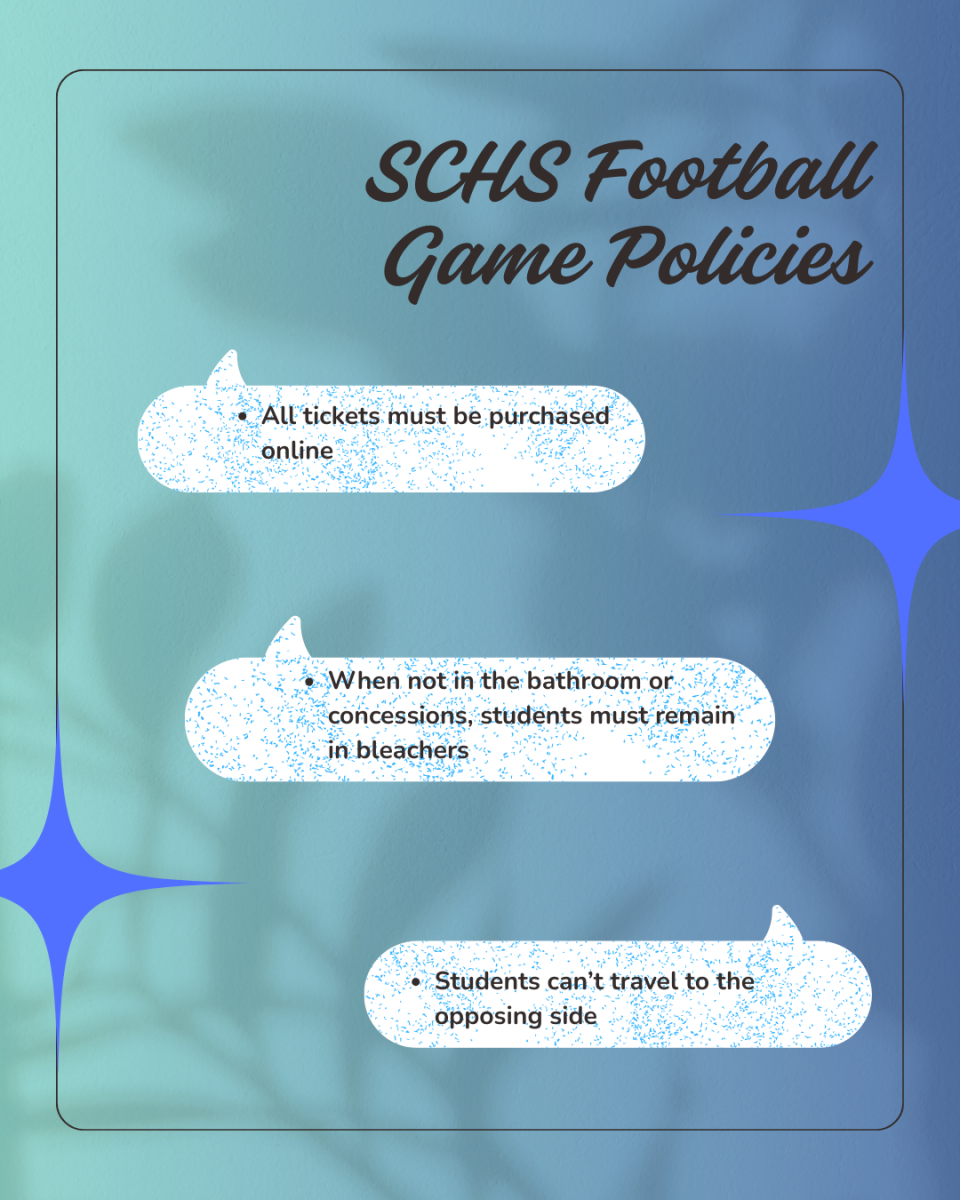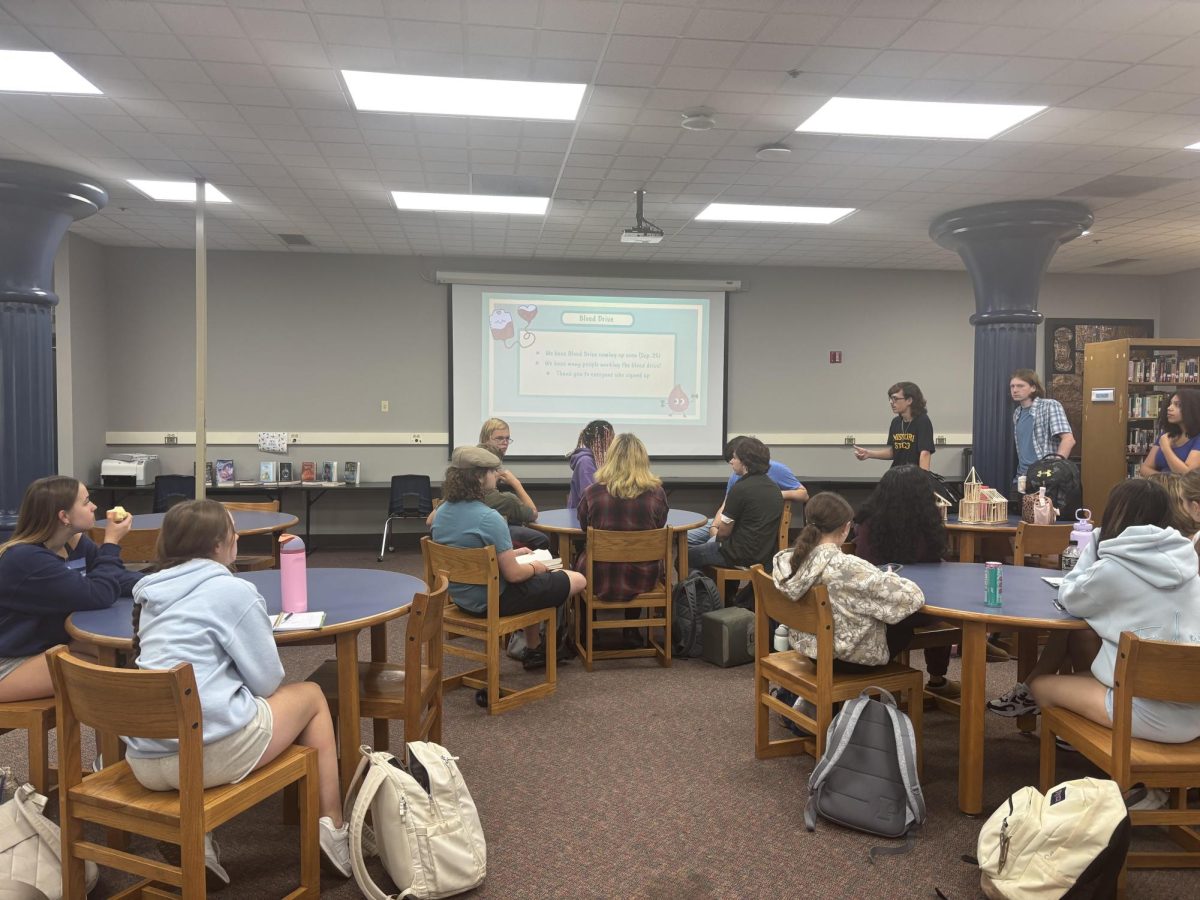Missouri Senate Bill #68, passed earlier this year, introduces statewide policies aimed at reducing phone use in schools. The law is part of a growing movement across the country to curb the usage of cellular phones in classrooms, also seen in states like Oklahoma, New York, and Texas, among others.
The bill sets clear expectations for school districts: restrict student phone usage during the school day, and assign disciplinary action to those who fail to follow the restriction. The law also ties funding to compliance, meaning districts must follow through or risk losing state support.
Lawmakers cited a variety of reasons for supporting the bill, including concerns of student focus, reduced attention spans, and increased anxiety. Supporters also argued the law helps protect students from cyberbullying during school hours.
Teachers now have more authority to control classroom environments; coupled with fewer distractions, many teachers feel as though they have their class back on track. Though others have expressed concerns over the autonomy of students and the district at large.
Students are adjusting to stricter rules. Many complain about boredom, reduced connection with friends, or excessive control by authorities, while others say the change helps them stay more engaged in class.
When asked about how well he received the new mandate, Science Teacher Johnathan Flaxbart, explained how “I was not the best previously about enforcing the policy, because if you wanted to fail my class, ‘cause you got on your phone under the desk then that’s your choice…but I’m a law-abiding citizen, so once it became a state law, I was like ‘oh I got to follow the law,’ so I like having that to lean back on.”
History Teacher Patrick Gebhard actually favoured the district policy of last year, in contrast to the Senate Bill #68, stating: “I realized that students really need time during the day, to check with.. maybe someone’s picking them up different, or they’re doing a club, and need to text a parent about ride, or getting permission to go down to the office and call- like all that’s a big thing to me. I would favour returning back to what we had last year, letting each district decide [what to do with electronic devices]… yeah I thought [last year’s policy] was great.”
Some teachers were more direct in their approval of the Bill, finding it not only sufficient for a learning environment, but also social connections between students.
Math Teacher Angela Southard sees benefits to students.
“I see my students talking to each other more, communicating more, working together… so that is good,” she said.
When asked about whether student’s displeasure with the bill, specifically concerning the fact that, previously, they had access to their phones during lunch and passing period, but now, have no access to it all, Southard explained that “I don’t disagree with student’s perspective on that, it’s just that we as a school had our hands tied, I mean, it’s a law.”
Discussing the topic of students socializing better, history teacher Tammy Orrick, actually expressed a different perspective to the mainstream.
“I feel like I notice students more on task, on their computers, finishing their assignments, because they can’t just get on their phones. However, that’s not really engaging with their peers,” clarifying that she meant students were more on task with their work, but not necessarily socializing with their peers.
“Yeah I think that last year made huge improvements… I think last year was doing its job, it just reinforces student’s commitment to their work,” Orrick said.
During the interview with Orrick, senior Brooklyn McCalister, was using her phone under the desk. Orrick told McCalister to put her phone on the desk, with McCalister asking “is this on tape?” This event, ironic as it is, is a direct example of the tough policies put in place by the Bill.
Sophomore Kenneth Minion explained his agitation on the bill.
“We already couldn’t use phones during class time… lunch and passing period is all we had, and now they took that away too.”
Sophomore Brendan Birkenmeier expressed a similar sentiment, though noting his own improved focus on school.
“I don’t really care for the ban, since I would go on my phone at lunch time, and we already didn’t have access to them in class, but I also noticed that I’ve been doing better in class, being more focused,” he said.
Senior Kevin Brunston, when asked about the new law, responded bluntly, “I don’t like the phone ban. I think last year was good enough.”
Brunston explained further that the stricter rules feel unnecessary, saying that students had already learned how to manage the old system. “We already weren’t allowed to use them in class, so what’s the point of taking away lunch and passing period too?” he said.
Sophomore Alex Kramer echoed that frustration, stating, “It’s so stupid because it was already banned by the school and it worked.”
Kramer argued that the law felt like lawmakers stepping into something they didn’t need to, noting that schools already had policies that worked on a local level. “I don’t see why the state needed to step in – the district already did its job,” Kramer said.
Despite the mix of perspectives from both teachers and students, the real results of Senate Bill #68 will be revealed in time. Early signs suggest that some students are more engaged in class, while others feel more restricted than ever. Whether the law proves to be a step forward for education, or just another layer of unnecessary control, remains an open question that only future outcomes will answer.
















